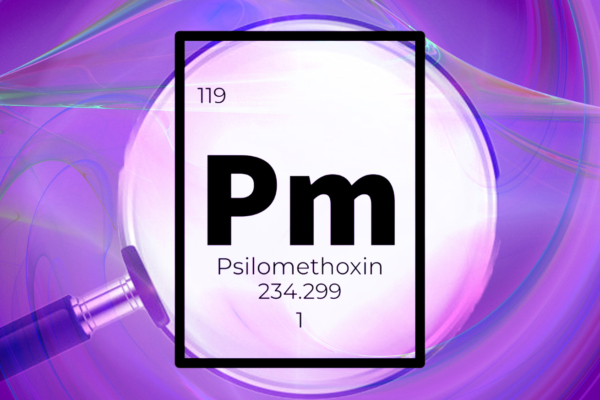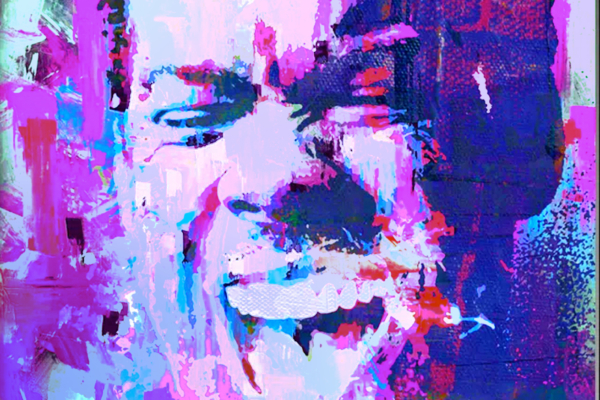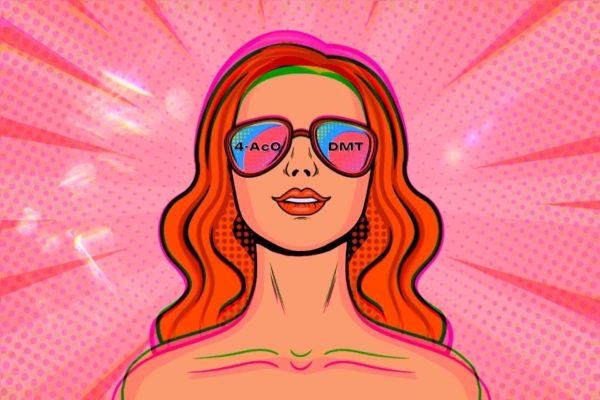
Over the past few years, state and local policymakers throughout the US introduced a deluge of legislation to decriminalize or legalize psychedelics. Meanwhile, scientific and therapeutic research of substances like MDMA, ketamine, and psilocybin show promise in treating many psychiatric conditions. And new psychedelic-focused biotech companies are raking in millions of investment dollars from venture capitalists eager to get in on the ground floor of a burgeoning industry. The psychedelic renaissance is here.
But, as exciting as these advancements may be, there’s one significant, glaring issue: most people benefitting from the psychedelic renaissance are white, western, and economically privileged.
“The irony of this is that indigenous cultures have worked with psychedelics — from Bwiti practitioners in Africa who take Iboga to the people of the Amazon basin who take ayahuasca — for thousands of years,” says Elijah Watson, News and Culture Editor for Okayplayer.
Many of the Black, Indigenous, People of Color (BIPOC) whose ancestors centered rituals and healing around psychedelics for millennia, and who have also faced over-policing and higher rates of drug-related incarceration, are excluded from the new psychedelic narrative.
And then comes the question of accessibility. Research teams, study participants, and psychedelic-focused biotech and medical entrepreneurs are also primarily white. And many of the conversations around psychedelics as therapy occur exclusively within wealthy, elite spaces like academia and Silicon Valley.
As the psychedelics industry becomes more legitimized, researchers and other professionals are fighting to break down barriers to participation, information, and psychedelics themselves.
Diversity and Inclusion in Psychedelic Research
Studies of psychedelic-assisted psychotherapy are rarely diverse. Of 18 studies held between 1993 and 2017, more than 82% of participants were non-Hispanic white, according to data published by BMC Psychiatry.
Jamilah George, a doctoral candidate studying clinical psychology at the University of Connecticut, is striving to change that. After working with a team to run the first clinical trial to study the effects of MDMA on post-traumatic stress in participants of color, she led a training for therapists of color hosted by the Multidisciplinary Association for Psychedelic Studies (MAPS). But, in an interview for The Independent, George admits that, as a Black woman, she wasn’t always bought-in to the idea of MDMA-assisted therapy.
“I was around all white people, talking about their experiences with these substances and how they’d changed their lives and how much they’d learned about themselves,” George says. “It was so foreign to me and really difficult to wrap my mind around. A world in which you can use an illegal substance and aren’t at risk for being arrested? It was like, where am I?”
And she wasn’t alone in her wariness. While other clinics had no challenges amassing waiting lists of participants, George and her team came up short. Of course, this didn’t come as a surprise given the well-justified distrust of the medical system among many people of color. To boost enrollment in the study, George and her peers took extra measures to ensure participants felt safe and informed.
But achieving inclusivity in this psychedelic renaissance goes beyond recruiting more diverse study participants and creating comfortable spaces. Research teams, as well as raters and sponsors, must also actively strive for better representation and better understanding of diverse experiences.
“Researchers organizing studies can incorporate anti-racist tactics by educating their teams about implicit bias in medicine and making efforts to include accurately representative populations in their sample groups,” says Ismail Ali, policy and advocacy counsel for MAPS, in an article for Psymposia.
Ali also points out that clinical research shouldn’t be the only method for gathering qualitative data. “I believe that discussing psychedelics in the context of lived experiences by populations who have historically been marginalized can also provide its own source of valuable knowledge,” he says.
Addressing Accessibility for Marginalized Groups
Ensuring inclusivity of underrepresented groups isn’t only about equity and fairness, though. BIPOC also experience significantly higher rates of racial trauma than white people, which can present symptoms similar to PTSD, like flashbacks, nightmares, headaches, and heart palpitations, according to the American Psychological Association. Given promising results of psychedelic clinical trials for PTSD, it stands to reason BIPOC could also benefit even more from these therapies.
Unfortunately, according to Lisa Sky, a somatic educator and bodyworker, because psychedelics research has primarily catered to white people, most data only reflects how psychedelics affect white people. “I think we need to broaden our lens for how we could help people with other types of problems,” she says in an interview for Mic.
Monnica Williams, an associate professor of psychology at the University of Ottawa and co-creator of Canada’s first Psychedelic Studies program, agrees. “I could do a million-dollar psychedelic study with only professional white women, and let’s say it works great,” she says in the same Mic article. “But I don’t know how well it’s going to work on a Bolivian American man.”
And, once psychedelics leave the clinical trials phase and become approved for therapeutic use, there’s also the question of who will be able to afford it, whether or not it will be covered by insurance, and who will have access to information about treatments.
“It’s up to us to find ways to disseminate resources and stop leaving them at the top, in the most elite research institutions,” Jamilah George says, referring to herself and fellow psychotherapists leading the psychedelic renaissance. “We have to find ways to take this information and bring it down, so it’s accessible.”
But it’s impossible to fully address these challenges without addressing existing systemic issues in healthcare, law enforcement, academia, and cultural representation in general. Access to psychedelics could help address racial trauma and promote significant healing for BIPOC but, until the industry better reflects the populace and honors those indigenous groups who first cultivated and worked with psychedelics, accessibility will continue to be an uphill battle.





